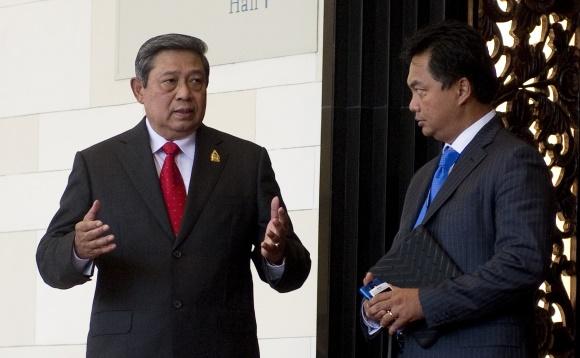
Finally, I would advise him on the importance of taking a stand. This can be tricky and requires courage, because Indonesians by nature like to please people and are averse to offending others. Being true to Indonesia's independent and active policy should not mean a policy of pleasing everybody. It does not mean a policy of equidistance. There have been times – many times – when we have to take a stand and risk displeasing others. In my 27 years as a diplomat, I have observed that Indonesia's international credibility usually rests on our ability to make clear judgments on difficult issues, and that we do not willingly succumb to pressure, be it from good friends or great powers. This is the source of our respect, and why Indonesia has become a moral force in international affairs.
The South China Sea is a pressing foreign policy issue that directly affects Indonesia. What can Indonesia do differently to push for negotiations on a code of conduct with China? Do you think a code of conduct would have the desired affects in easing tensions? Yes because so far, the ASEAN-China working group is the only game in town regarding the South China Sea disputes. None of the claimants are ready to negotiate their territorial claims yet, so the next best thing is to negotiate how they should behave. Indonesia is trying to do its part constructively because we are not a claimant, and we can be an honest broker in this effort. The key is speed and political will. We must not let discussions on the code of conduct drag on for too long – certainly not for another 10 years, as they did for the declaration of conduct. And once it is agreed, ASEAN and China must not treat it as just a piece of paper, but as an actual practical guideline that can change the situation for the better and make disputes more predictable and stable on the ground.
Perhaps then they can move on to the next stage of managing the disputes, which would be some kind of joint development effort in the South China Sea. This will prove to be a much more difficult process than devising a code of conduct, but it is possible. After all, the claimants have, rhetorically, agreed to it.
Do you think Indonesian missions abroad are getting enough tools and budgetary support from the national government? Well, we can always use more. Many of our diplomats return home without much savings. I think our foreign policy budget has not kept up with our increasing burden of work. We are now a G-20 country, a regional leader, an emerging power with a high degree of diplomatic activism, and that means more responsibility and a bigger role for us. In Indonesia, we have a saying, “Ada rupa, ada harga,” – there is a cost to do good things.
When I served as ambassador in Washington, many of the embassy's key programs – the American batik design competition, the Guinness angklung world record, the World Diaspora Congress, the magnificent Saraswati statue in front of the embassy and so on – all these things were done independently by rallying corporate support, because there was no official budget for this. I was lucky because in the US, we had the US-ASEAN Business Council, the United States-Indonesia Society and other friends that are always enthusiastic to work with us on common projects. But many Indonesian ambassadors in other postings do not have this luxury and tend to rely solely on their allocated budget.







 resized.png)
